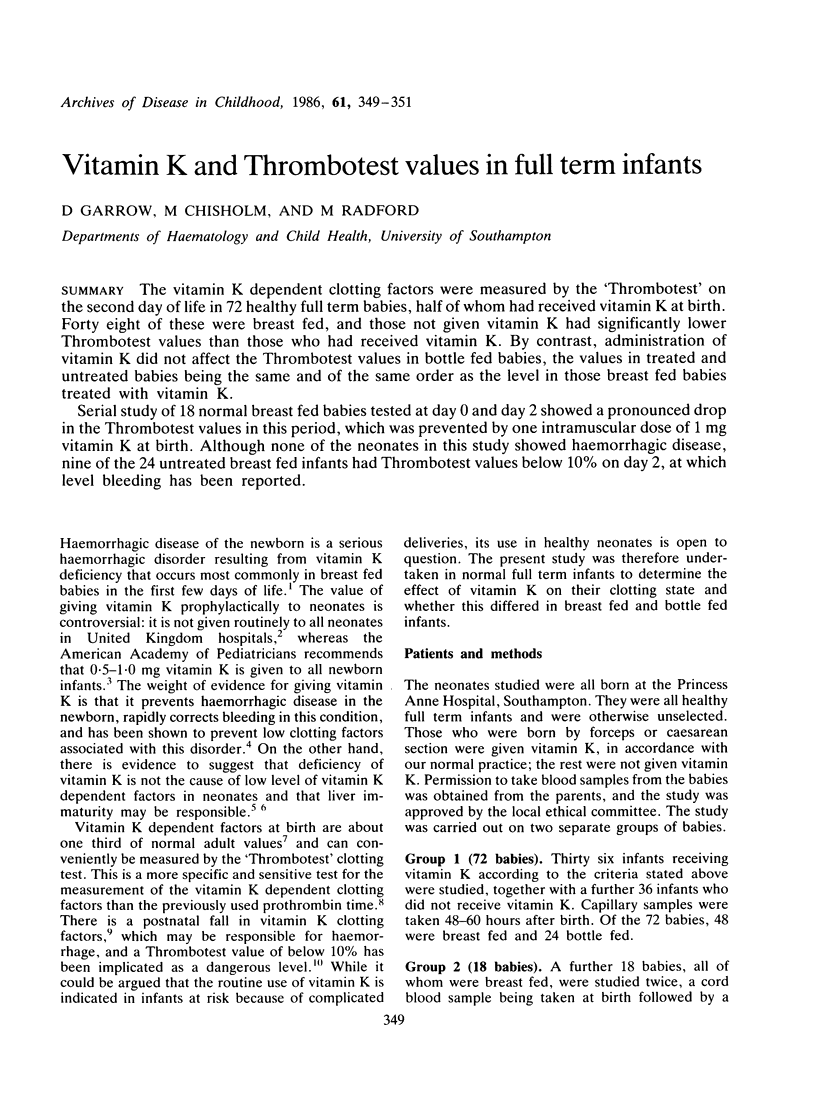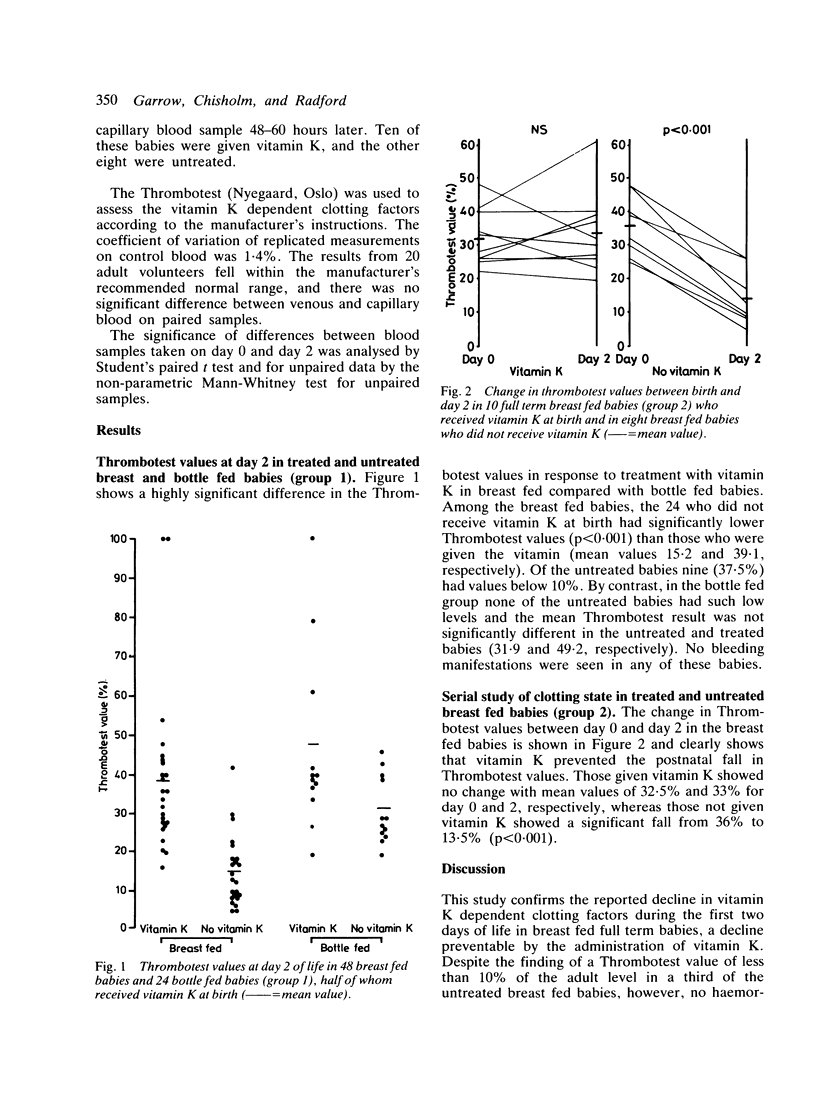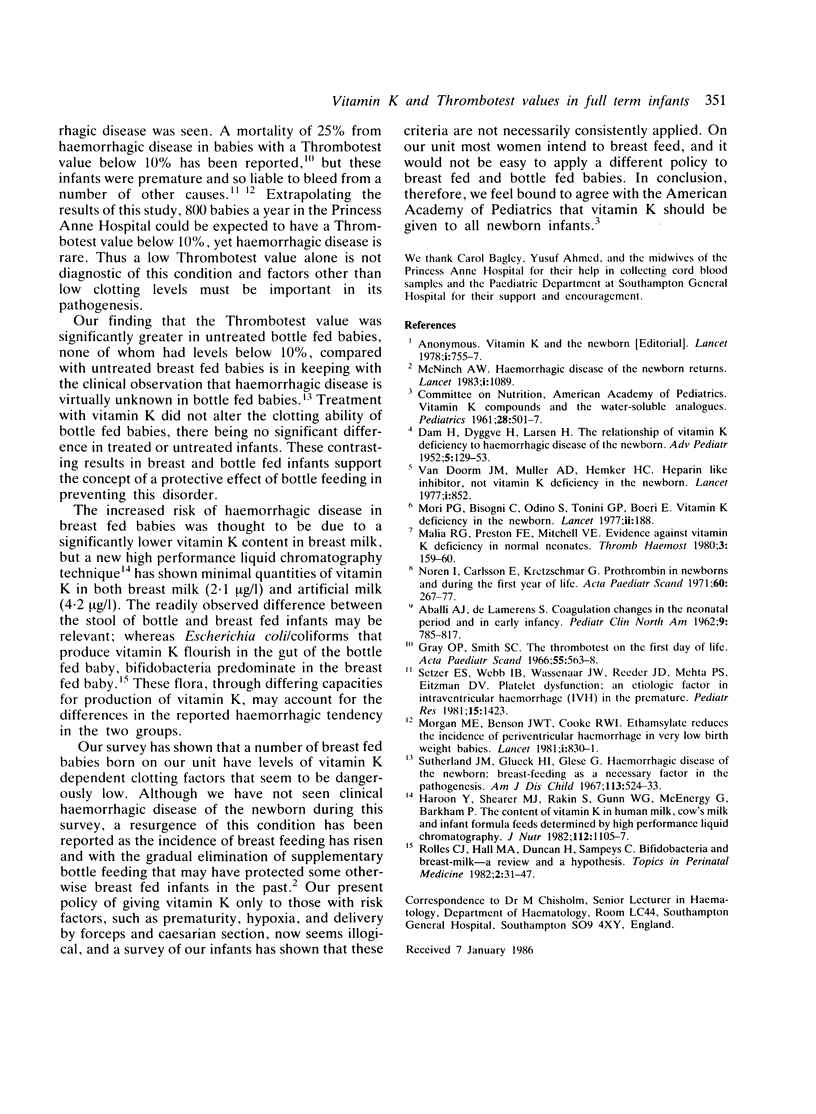Abstract
The vitamin K dependent clotting factors were measured by the 'Thrombotest' on the second day of life in 72 healthy full term babies, half of whom had received vitamin K at birth. Forty eight of these were breast fed, and those not given vitamin K had significantly lower Thrombotest values than those who had received vitamin K. By contrast, administration of vitamin K did not affect the Thrombotest values in bottle fed babies, the values in treated and untreated babies being the same and of the same order as the level in those breast fed babies treated with vitamin K. Serial study of 18 normal breast fed babies tested at day 0 and day 2 showed a pronounced drop in the Thrombotest values in this period, which was prevented by one intramuscular dose of 1 mg vitamin K at birth. Although none of the neonates in this study showed haemorrhagic disease, nine of the 24 untreated breast fed infants had Thrombotest values below 10% on day 2, at which level bleeding has been reported.
Full text
PDF


Selected References
These references are in PubMed. This may not be the complete list of references from this article.
- ABALLI A. J., DE LAMERENS S. Coagulation changes in the neonatal period and in early infancy. Pediatr Clin North Am. 1962 Aug;9:785–817. doi: 10.1016/s0031-3955(16)31311-6. [DOI] [PubMed] [Google Scholar]
- DAM H., DYGGVE H., LARSEN H., PLUM P. The relation of vitamin K deficiency to hemorrhagic disease of the newborn. Adv Pediatr. 1952 Jan;5:129–153. [PubMed] [Google Scholar]
- Gray O. P., Smith S. G. The thrombotest on the first day of life. Acta Paediatr Scand. 1966 Nov;55(6):563–568. doi: 10.1111/j.1651-2227.1966.tb15255.x. [DOI] [PubMed] [Google Scholar]
- Haroon Y., Shearer M. J., Rahim S., Gunn W. G., McEnery G., Barkhan P. The content of phylloquinone (vitamin K1) in human milk, cows' milk and infant formula foods determined by high-performance liquid chromatography. J Nutr. 1982 Jun;112(6):1105–1117. doi: 10.1093/jn/112.6.1105. [DOI] [PubMed] [Google Scholar]
- Malia R. G., Preston F. E., Mitchell V. E. Evidence against vitamin K deficiency in normal neonates. Thromb Haemost. 1980 Dec 19;44(3):159–160. [PubMed] [Google Scholar]
- Sutherland J. M., Glueck H. I., Gleser G. Hemorrhagic disease of the newborn. Breast feeding as a necessary factor in the pathogenesis. Am J Dis Child. 1967 May;113(5):524–533. doi: 10.1001/archpedi.1967.02090200056003. [DOI] [PubMed] [Google Scholar]
- van Doorm J. M., Muller A. D., Hemker H. C. Heparin-like inhibitor, not vitamin-K deficiency, in the newborn. Lancet. 1977 Apr 16;1(8016):852–853. doi: 10.1016/s0140-6736(77)92795-7. [DOI] [PubMed] [Google Scholar]


